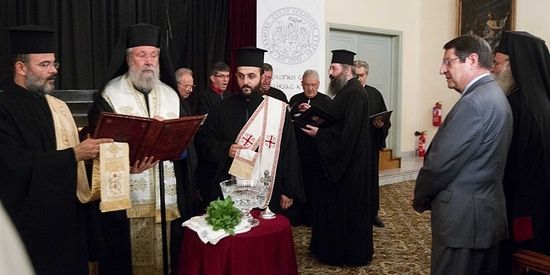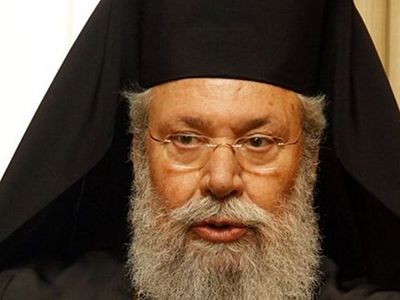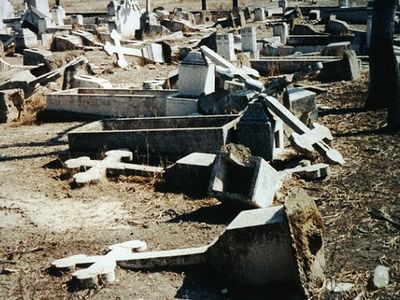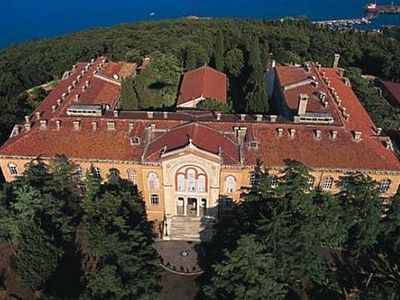Source: Cyprus News Agency
September 16, 2015
"The establishment of the Theological School of the Church of Cyprus comes at a time when our country is in need of shining examples," said President of the Republic, Nicos Anastasiades who inaugurated the School together with Archbishop Chrysostomos II on the grounds of the Archbishopric.
Archbishop Chrysostomos described a particularly glorious day for the Church of Cyprus, noting that the establishment of the Theological School serves a growing need of the Church of Cyprus to cultivate its own Theological Education.
"We express joy and jubilation because we see our ardent desire," he said, "fulfilled."
"The theological school will aim to promote religious beliefs, to educate about Christ and to instil in the hearts of the clergy the desired ethos," he added. "It will promote scientific education and solemn life and the cultivation of critical thinking."
President Anastasiades said that the Theological School of the Church of Cyprus was "founded during a difficult and crucial time for the future of our country."
He said it comes at a time when our country is now in need of shining examples. It will remedy its moral standing and regain its freedom and dignity at all levels.
The President pledged that the government will stand by the new school and support the Church of Cyprus in this effort.
In his message, which was read during the ceremony, Ecumenical Patriarch Bartholomew said that he was deeply moved and satisfied to be informed of the decision of the Church of Cyprus to found a theological school.
The Ecumenical Patriarchate, as guardian of the living theological truth, looks forward to the efforts of the Theological School of Cyprus.
He also congratulated Archbishop Chrysostomos and the Holy Synod and wished the school to become a centre of theological education and initiation of students in the spirit and ethos of the Orthodox Church.
In his address, the Director of the Theological School, Deacon Kyprianos Kountouris, said it was imperative to establish a school which aims to maintain university-level standards.
He noted that the school begins with a four-year undergraduate theology programme that was adopted by the competent bodies of the Ministry of Education and Culture and this year is offered to twenty-five students. During the first year of study there will be fourteen classes taught by ten teachers, two of whom will be visiting professors from theological schools of Greece and Lebanon as well as the wider academic world of Europe.




